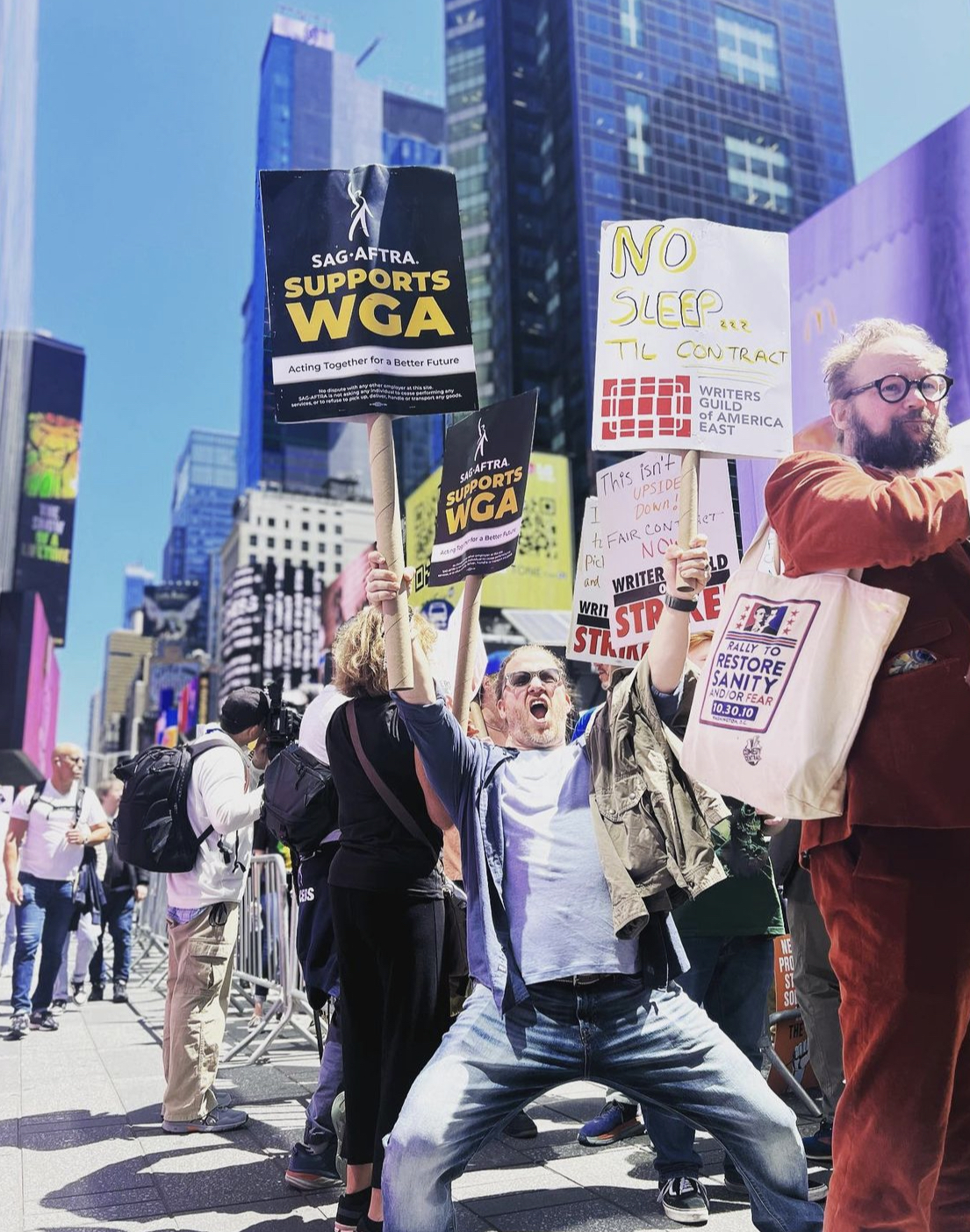By Satyne Doner, Co-Editor-in-Chief
As the entertainment and media industries rake in billions of dollars in revenue each year, screenwriters, and actors alike join picket lines to fight for their rights.
The Writers Guild of America (WGA), a labor union that represents all sorts of writers from television to film and online media, has been on strike since May after negotiations failed with the Alliance of Motion Picture and Television Producers (AMPTP).
Similarly, the Screen Actors Guild – American Federation of Television and Radio Artists (SAG-AFTRA) joined the WGA on strike on July 14, 2023, to protest similar issues with the AMPTP and Hollywood’s treatment of both actors and writers.
The last time actors and writers teamed up for a simultaneous strike was in 1980, for similar reasons: residuals and the future of industry.
Except this time, screenwriters and actors are facing a different sort of existential threat: where AMPTP used to consist of mostly studio heads, it now encompasses networks and streaming companies, many of which are anchored in technology and considering artificial intelligence.
The rise in streaming companies has left many writers with poor compensation on residuals, which is payment for the reuse of a writer’s work in films, television, and media. The conversations around artificial intelligence have left writers with concerns about job security.
Similarly, SAG-AFTRA cannot agree on a new contract with AMPTP, disagreeing over the use of artificial intelligence to scan actors’ faces and generate digital performances. They are also disputing residuals and seeking to ratify a new labor contract that, in part, prevents artificial intelligence from replacing actors on set.
The conversations swirling around artificial intelligence have infiltrated every part of our society – from medicine to business and even politics. However, creatives have an extraordinary amount of concern over modern technology.
“Of course, writers of all stripes are fearful that AI will replace us in the workplace, the creative sphere, and in the classroom,” said Gianna Russo, associate professor of English and creative writing at Saint Leo University. “As time goes on, AI’s abilities are going to increase, becoming more diverse and polished. Where does that put us?”
Actors such as Jack Black, Jamie Lee Curtis, and Jennifer Coolidge have joined the picket line in solidarity with WGA and SAG-AFTRA. Even former U.S. President Barack Obama stood in support of the strike.

Writers like Viet Thanh Nguyen and Margaret Atwood have signed letters from the Author’s Guild demanding OpenAI stop using their writing to “train” AI models, following lawsuits against the large language model.
Fran Drescher, star of The Nanny and SAG-AFTRA union president, gave a fiery speech going against Hollywood during the strike, speaking to the big studios on behalf of actors and writers everywhere.
“I cannot believe … how far apart we are on so many things. How they plead poverty … when giving hundreds of millions of dollars to their CEOs. It is disgusting. Shame on them. They stand on the wrong side of history,” Drescher said. “We demand respect! You cannot exist without us!”





